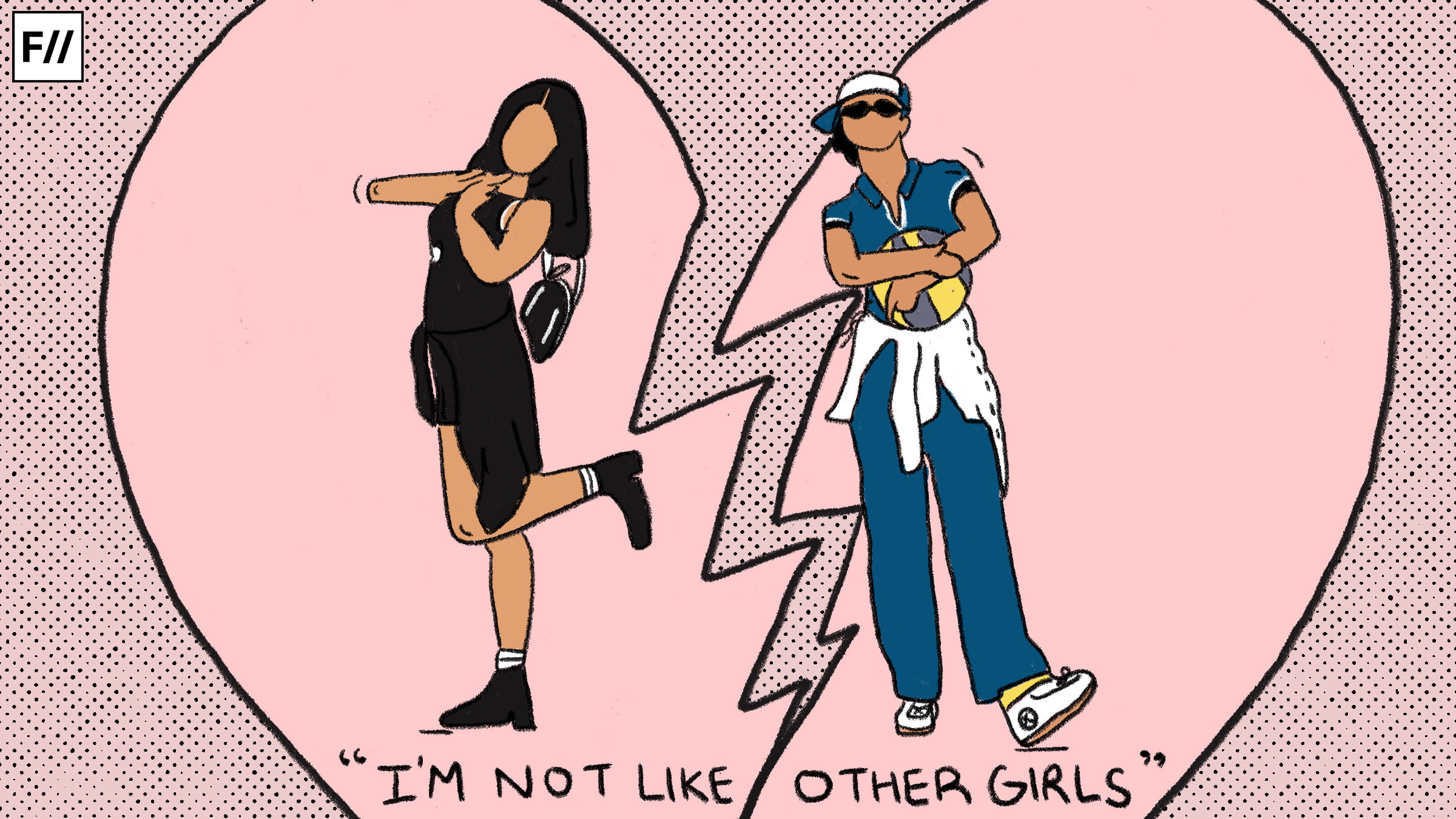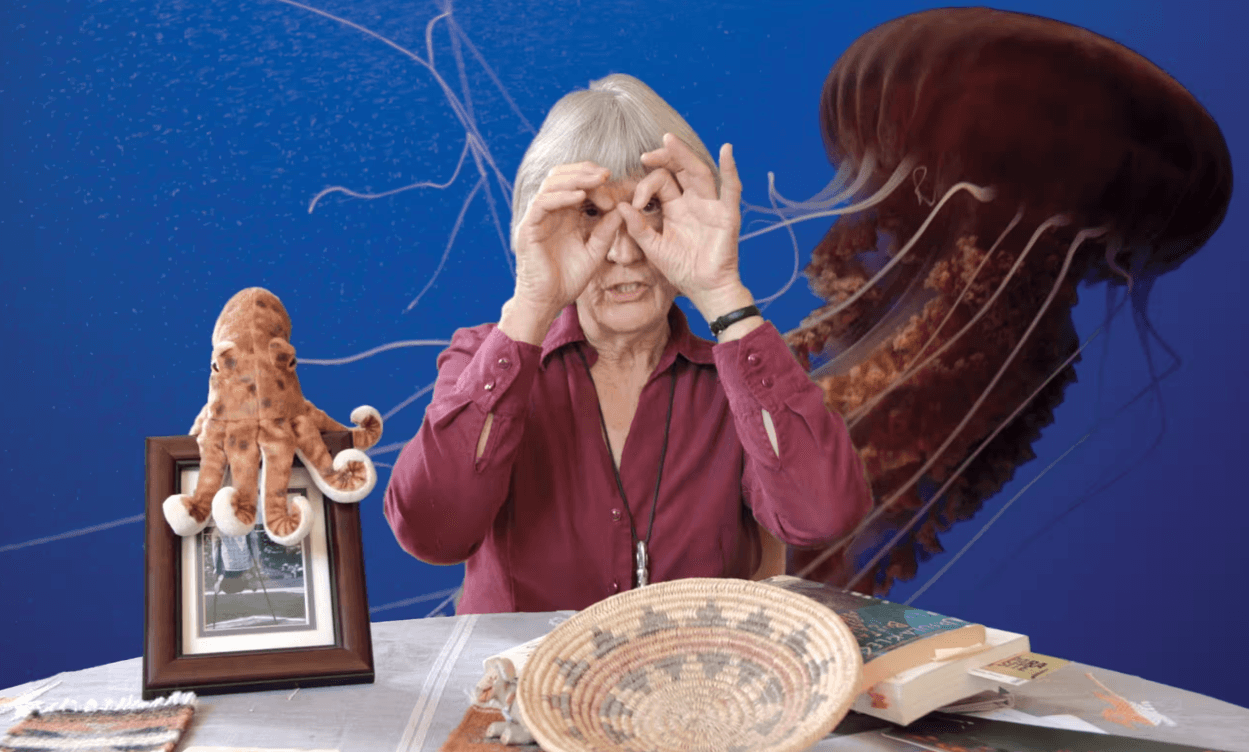“That’s so girly”, “Why are you acting like such a girl?”, “I hate the colour pink”, and “I’m not a typical girl” are some of the sentences that are all too familiar. Sentences that we’ve probably even said a few times. The world has come to associate the word ‘girl’ – which is merely an adjective used to describe just one part of a person – with negative, shallow, cowardly implications, that seem to manifest most in, well, girls themselves. Where is this hatred of our own gender coming from?
Growing up, this was a big influence in my life. I tried to stand out from the crowd in as many ways as possible. I made efforts to not be seen as a ‘typical girl’ in the way I dressed, spoke, and even my body language. Every action I took was to try and show the world that “Hey, I am not like the rest of them!”
I never wore dresses or heels, and shunned people who wore makeup. I worked constantly to get involved in the boys’ group and play masculine sports like cricket and football. It gave me genuine pride when someone told me I was more like a boy than a girl. Looking back now, it was a desperate plea to be considered intelligent and unique, because as far as I could see, you couldn’t be thought of as those things if you were a girl who did ‘girl things’ like go shopping, wear make-up and gossip with her friends.
It was simply a way to try and not be stereotyped negatively and be treated as feminine, because I never saw them treated as individual people with their own hobbies, interests and choices. They were just looked upon as shallow and fake. I, like all other people, wanted to be recognised for the sentient and creative human begin that I was. It saddened me that if I didn’t put up this act, I would simply be shoved into a confining and limiting box, and never be looked at differently again.
I invalidated an entire population of people and had cultivated this massive dislike that took a long time to let go of.
There was also an internal frustration that none of the other girls seemed to care about – they never seemed to want to do anything other than paint their nails and talk about boys. This, of course, was entirely untrue. Every girl that I have ever known was a person unto herself, just like everyone else. She had her own dreams, and desires and conflicts. I just didn’t want to see it. I worked hard to maintain that the only friends I had were boys, and that girls were silly. I invalidated an entire population of people and had cultivated this massive dislike that took a long time to let go of.
We’ve grown up with the notion of considering ourselves as worthless in the way we choose to express our choices and values. Only the traditionally masculine roles seem to have any depth or validity. We’re taught that we need to fight, that we need to compete with each other. We’ve grown up watching media where women are either portrayed as a) shallow and mean, only interested in boys, the one that gets called a bitch and has no substance as a person or b) the ‘strong’ woman who goes out of her way to win male approval by breaking the ‘catty’ stereotypes, and being quirky and weird and unique, again being entirely deprived of substance and humanity other than her supposed strength.
Also read: #MeTooIndia: How Toxic Masculinity And Misogyny Caused Me Trauma
Is that what it takes to be accepted as a unique person in society, as a human being? We grow up watching the humanity stripped from us, and thus internalise the idea that we cannot be treated as a human if we conform to this negative stereotype of an average girl or woman. Additionally, strong women seem to always equal excessively masculine women. And that’s doing more harm than good, because it’s telling young girls that you cannot be successful unless you act like a man – thus propagating the idea of the inferiority of femininity.
We resort to hating other girls to try and empower ourselves, because that’s what we’ve been taught all along. This is furthered by living in a society that only considers two genders, and has perfectly categorised behaviours and consequences for each, with one being favoured over the other. We begin to think that we have no hope in life unless we act masculine.
We resort to hating other girls to try and empower ourselves, because that’s what we’ve been taught all along.
I am very much out of that place now. I look up to many strong and confident women, who inspire me every day. And even women who don’t come across as strong or confident have their own stories and struggles that we often choose to stay blind to. But the thinking that society raised me on still lingers. I falter every time I walk into a clothes store and see only women. Shopping is deemed a typical “girly” thing that’s bad, and shallow, and my instinct is to not want to be seen like that. My clothing style remains relatively masculine, and I worry it’s something I’ll never be able to let go of.
All of this was an intense desire to not be oppressed by society’s thinking, by toxic standards and stereotypes, to not want to be boxed away and never looked at again. This need to break out of the stereotype and be unique is only creating more of a divide than there was before, and isn’t furthering the cause for empowerment.
Also read: Book Review: ‘Down Girl: The Logic of Misogyny’ By Kate Manne
Femininity is not inferior. Each person who identifies as feminine is a human being who expresses themselves uniquely and individually, with equally valid goals and dreams and aspirations. Having female friends is a great thing! Feminine influences are important, and the idea of strong, functional female friendships between real, 3 dimensional people needs more representation, in both the media and real life.
About the author(s)
Viveka is passionate about health, well-being and equality. When not writing, she can be found reading British humour and panicking about the future.





I’m an Indian woman with two divorces and a happy third marriage.
I’ve spent the past 14 years being crushed by the unceasing contempt and disdain that other women have for me.
That’s been a soul-destroying experience. I feel especially betrayed by other women; because I expect them to empathise with the deep sexism of traditional Indian marriage dynamics.
I expect other women to understand why I took the apparently life-destroying decision of ending not one, but TWO marriages.
I expect them to understand why I refused to be tyrannised Indian daughter-in-law. I expect them to understand why walking out was the only way I could preserve my freedom, dignity and self-respect.
Alas, this empathy and acceptance has been hard to come by. Women who are themselves in unhappy, abusive marriages judge me the most; counter-intuitive though it may be.
Why Indian women are so harsh to each other; even educated, working ones, is something I’ll never fully understand.
What I do know is that this internalised shame and misogyny creates tragic outcomes; because women rely on each other for understanding and support.
When a woman finds herself alone; bereft of support and acceptance from other women, she becomes yet another judgemental, scheming, stereotypically bitchy and petty Indian aunty whom we endlessly vilify.
@PD – I hear you sister. When those who we think should understand us the most turn out to not only misunderstand us, but sometimes even act malicious towards us, it can make us feel so much worse. If only more people had the courage to be kind, they’d beget kindness, strength and support for themselves, AND for the world around them. Now wouldn’t that be a nice world to live in?
Having been through plenty shit myself, like you said- bereft of support and acceptance from other women- including the woman who I call mother – having been through so much, I could see myself becoming a harsh, inverted version of myself. It has taken everything in me to fight these demons and subdue them. I wouldn’t wish this emotional anguish on my worst enemy.
Still I want to believe things are changing for the better. I for one had embarked on my personal journey many years ago to be the change I wanted to see in the world. It’s no easy task, so much showing up to do in my every day life, but it’s what I promised myself, so trying to keep my word. And from the looks and sounds of it, I’m not the only one making different decisions than my mother and aunts. So many women today are choosing different and better for themselves. Like you too! Kudos! Even if things feel difficult, keep your clarity, stay focused on your wellbeing and live your best life! Hugs!
I wasn’t allowed to dress myself, explore music or art, or generally express myself in any real way because my interests were too “masculine.” I think it’s horrible that myself and the author wanted the opposite things in life, yet we both managed to lose. When you’re a woman/girl, you can’t win.
when you are a woman or girl you can WIN if you put your mind to it
i loved reading this beautiful message and related to everything even though am not Indian…please i want to see more of your writing and no sport is masculine or feminine